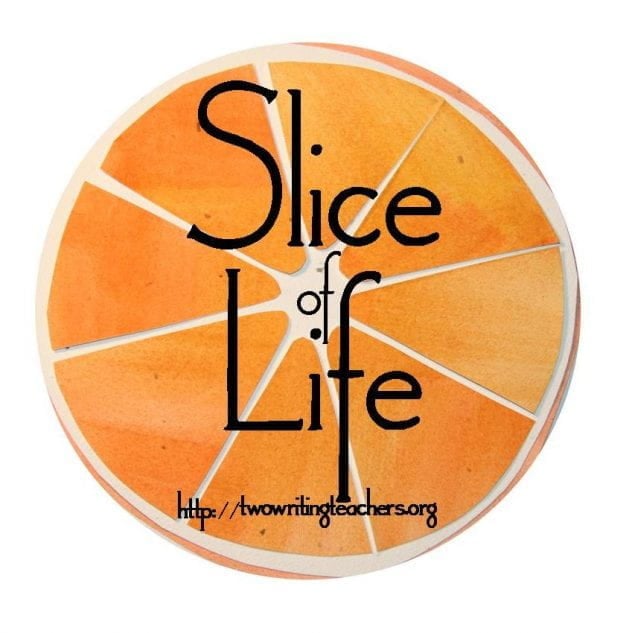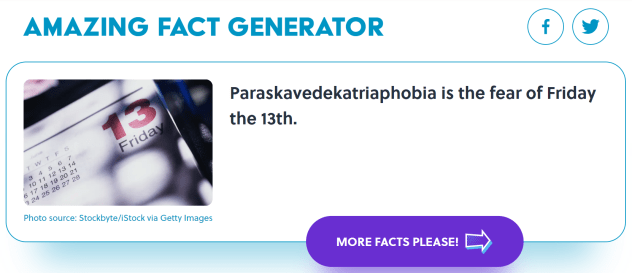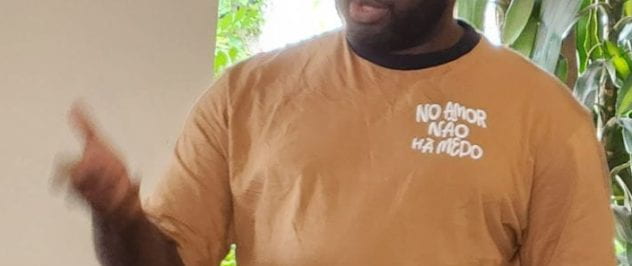
Happy Wednesday the 13th. I don’t think there is a word to describe a fear of Wednesday the 13th, but there is a word to describe a fear of Friday the 13th: Paraskavedekatriaphobia. That is surely a mouthful!
Last week Amy Juengst wrote a great post inspired by another Amazing Fact generated on the Mental Floss website. It was about heeding good advice about getting enough sleep because sleep is a time to clean your brain from daily toxins. I thought Amy’s idea, which was a prompt challenge she learned from NaPoWriMo, was such a good one that I kept it up my sleeve and went to it today.
When I saw the first amazing fact, I knew right away that would be my inspiration. I’m not at all afraid of Friday the 13th, that is one big word, and I have no idea how to pronounce it. That’s about all I have to write about that amazing fact.
However, I chose this amazing fact because it reminded me of another story–very loosely related!
Last month, I went to Brazil for a storytelling training. The translator for my group, was a sweet teenager who was on vacation from school for Carnaval. She was full of life and enjoyed making people laugh. She had an American English accent, which I found surprising, but she explained that she learned English in Arizona when her dad was in graduate school at the University of North Arizona.
One of the stories she told us about her time in Arizona made me smile. At her new school, she hardly knew any English, but she learned quickly. It was her first year, and her fourth grade teacher asked Victoria if she would teach her some words in Portuguese. Victoria told her with a straight face she had the perfect word to begin her lessons. Paralelepípedo. She said the teacher didn’t ask her to learn any more Portuguese.
Paralelepípedo is seven syllables of pure fun.
It actually has two meanings in Portuguese. One is a paving stone and the other is a parallelepiped. Which is also fun to pronounce and almost spelled the same. (In case you are out of practice with geometry, like I was, it is a three-dimensional six-sided shape, like a slanted cube. Each side is a parallelogram.)





